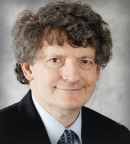Today, the U.S. Preventive Services Task Force (USPSTF) published a final recommendation statement on screening for lung cancer in people who do not have signs or symptoms. Based on the evidence, the USPSTF recommends yearly screening using a low-dose computed tomography (CT) scan for people aged 50 to 80 who are at high risk for lung cancer because of their smoking history. This is a B recommendation, meaning that the USPSTF recommends the service and that there is high certainty that the net benefit is moderate or there is moderate certainty that the net benefit is moderate to substantial.
The Task Force’s final recommendation statement and corresponding evidence summary and modeling studies have been published by Jonas et al in JAMA, as well as on the Task Force website. A draft version of the recommendation statement, evidence review, and modeling studies were available for public comment from July 7 to August 3, 2020.
Smoking is the leading cause of lung cancer, and more than 200,000 people are diagnosed with the disease each year. In this final recommendation, the USPSTF has made two changes that will nearly double the number of people eligible for lung cancer screening: first, the Task Force now recommends that people start screening at age 50, rather than 55; second, this recommendation reduces the pack-years of smoking history that make someone eligible for screening from 30 pack-years to 20. The Task Force stresses that the best way of reducing a person’s risk of dying of lung cancer is to quit smoking, and if they have already quit, to continue to stay smoke-free.
Candidates for screening are people between age 50 and 80 who have smoked at least 20 pack-years over their lifetime, and still smoke or have quit smoking within the last 15 years. A pack-year is a way of calculating how much a person has smoked; one pack-year is the equivalent of smoking an average of 20 cigarettes (or one pack) per day for a year. People between age 50 and 80 who are current or former smokers should talk to their doctor about whether they are at high risk for lung cancer. If they are, they should discuss the benefits and harms of screening so they can determine whether screening for lung cancer is right for them.

Michael J. Barry, MD
“The Task Force reviewed new evidence that shows screening can help many more people who are at high risk for lung cancer,” said USPSTF member Michael J. Barry, MD, Director of the Informed Medical Decisions Program in the Health Decision Sciences Center at Massachusetts General Hospital, Professor of Medicine at Harvard Medical School, and a clinician at Massachusetts General Hospital. “By screening people who are younger and who have smoked fewer cigarettes, we can save more lives and help people remain healthy longer.”
By expanding who is eligible for screening, the changes to this recommendation will be especially helpful to Black people and to women. Data shows that both groups tend to smoke fewer cigarettes than White men. Data also shows that Black people have a higher risk of lung cancer than White people. These changes will mean that many more Black people and women who smoke will be eligible for this potentially life-saving screening.

John B. Wong, MD
“The changes to this recommendation mean more Black people and women are now eligible for lung cancer screening, which is a step in the right direction,” said USPSTF member John B. Wong, MD, Chief Scientific Officer, Vice Chair for Clinical Affairs, Chief of the Division of Clinical Decision Making, and a primary care clinician in the Department of Medicine at Tufts Medical Center. Dr. Wong is also Director of Comparative Effectiveness Research for the Tufts Clinical Translational Science Institute and a Professor of Medicine at Tufts University School of Medicine and the Tufts University School of Graduate Biomedical Sciences.
“However, to save more lives and ensure that everyone who would benefit is screened, it is critical that screening is implemented broadly and equitably,” added Dr. Wong.
The USPSTF is an independent, volunteer panel of national experts in prevention and evidence-based medicine that works to improve the health of all Americans by making evidence-based recommendations about clinical preventive services such as screenings, counseling services, and preventive medications.

